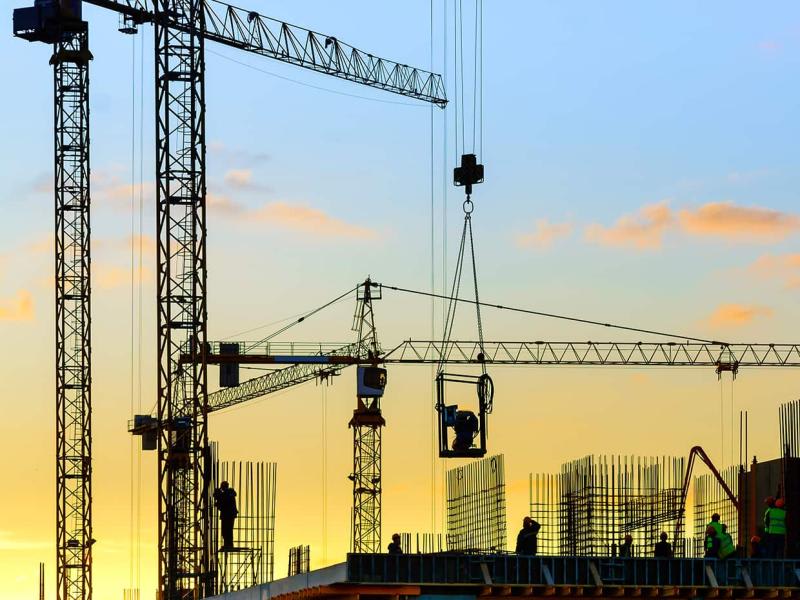The acquisition of Cimic, Australia's largest construction group, by Spain's Grupo ACS has led to the company's delisting from the Australian Securities Exchange in May 2022, marking the decline of locally owned civil construction firms.
This development means that all of Australia's Tier-1 civil contractors are now owned by foreign companies and corporations including China Communications Construction Company's ownership of John Holland and the Spanish-run Acciona's ownership of Lendlease Engineering, which were acquired through mergers and acquisitions over the past decade.
It’s a disturbing trend that has not escaped the attention of civil construction industry advocates Australian-Owned Contractors (AOC) who, for the past 5 years, have argued the need for changes to federal, and state and territory governments’ policies that would allow more Australian mid-tier contractors the opportunity to deliver major public infrastructure projects. 
More than 90% of Australia’s largest public infrastructure projects are currently being delivered by foreign-owned multinationals—and although the AOC is welcoming of direct foreign investment where it can deliver better outcomes and encourage competition across the sector, it argues it should not be at the expense of crowding out local mid-tier civil constructors to the detriment of the industry and the broader Australian economy. Contracts should also be awarded based on sustainable rates to both the government and the contractors.
“Without significant reform across both federal and state/territory governments to their infrastructure procurement practices, the same outcomes will continue to perpetuate: a small handful of multinational foreign contractors will dominate the market for head contractor positions, leaving Australian-owned mid-tiers at best relegated to sub-contractors or at worst, never able to reach their potential in size, innovation or capacity to excel”. – Brent Crockford, CEO of the AOC.
History shows that for 40 years between the 1950s and 1990s, the current batch of Tier-1 contractors benefitted from former governments’ support that allowed them to evolve and grow from their Tier-2 status. Without that same support for current Tier-2 contractors, there’s a genuine risk to the sovereignty and sustainability of Australia’s construction sector.
How did we get here?
Government procurement processes have increasingly seen big infrastructure projects (above $500m) bundled up into multi-billion-dollar tender packages – such as the $4.24b Sydney Western Harbour Tunnel – in an attempt to ameliorate risk by having a single head contract.
This model favours Tier-1 contractors because they are able to meet the balance-sheet requirements of state and territory-based procuring agencies. This high threshold also means the pool of competing tenderers is much shallower. A good example is where the NSW Government received one bidder to construct a major transport project, Rozelle Interchange in Sydney's inner west.
Mid-tier contractors do not have the ability to take on the sole financial risk associated with these larger-scale projects which cuts them out of the skills development, competence building, and project leadership opportunities that would otherwise enhance their experience and potential to grow.
Existing Tier-1 contractors also have little economic incentive to partner with non-Tier-1 contractors and no interest in helping develop Australian-owned companies into potential future competitors.
It’s a vicious cycle that is leading to a more concentrated foreign multinational market and flies in the face of government and regulatory expectations around free-and-fair competition across the breadth of Australia’s civil construction industry.
“The Australian civil construction industry needs substantial reform. Transactional contracting to primarily tier one construction companies has drained the supply chain and industry of local capability. Without an overhaul to procurement methods, the sustainability of the industry and rebuilding of the supply chain is at question. The AOC is calling on the federal government and state and territory agencies to:
- break down projects to promote competition
- develop greater diversity in head contractors
- reform contract strategies to allow the Australian construction industry to flourish again.”
– Peter Thomas, Chair of the AOC.
What's the impact?
Restricting the potential of Australian-owned companies can have serious consequences across the industry and national economy.
It can:
- stifle innovation and diversity
- affect the health of market dynamics, particularly if Tier-1 companies very often joint venture with other Tier-1 firms as a default
- impede local contractors’ exposure to larger projects and lock them into subcontracting roles or smaller projects
- inhibit local contractors’ capacity and capability for growth and development through what should be free and fair access to taxpayer funded projects
- reduce the sustainability and resilience of a sovereign civil construction industry
- limit one of the Australian economy’s key growth and development engines (the construction sector)
- contribute to profits, expertise, knowledge and intellectual property flowing offshore.
How should we address the problem
Collaborative approaches and strategic policy interventions are essential to assist domestic contractors to break this restricting cycle.
The AOC is already gathering data, raising awareness of the issue, and lobbying governments for more inclusive procurement procedures, project packages and regulations that encourage fair competition, transparency and accountability to ensure both domestic and foreign contractors can compete on an even playing field for publicly funded projects.
There is little doubt that mid-tier firms also need to build resilience and sustainability into their operations to secure their long-term viability, and while the AOC is assisting with resources, access to professional counsel, networking chances and market knowledge, there is a broader opportunity for other industry supporters to contribute to workable solutions that benefit the sector.
How RSM Australia can help
As a neutral, and unbiased professional firm that understands the complexities of the construction industry and is committed to assisting the growth and success of Australian contractors, RSM Australia offers advice and expertise on financial and regulatory issues to assist Tier-2 contractors develop their financial management practises, risk-management methods and sustainability initiatives.
Financial management
We can work closely with contractors to create sound financial management procedures that maximise cash flow, control project costs and adhere to tax laws.
We can also offer greater visibility and transparency of contractors’ financial performance and enable more informed decision making through establishing robust budgeting and financial reporting systems and offering financial forecasts.
Risk management
Developing resilience in the construction sector requires effective risk management. There are many hazards that contractors must deal with, such as project delays, cost overruns, legal issues, and safety problems. RSM Australia offers specialised risk-management solutions that can assist contractors in identifying, evaluating, and reducing these risks. Solutions may include:
- creating frameworks for risk assessment
- implementing internal controls
- offering guidance on insurance coverage.
We can also help contractors navigate complicated regulatory requirements such as building codes, environmental rules, and workplace health and safety regulations to ensure compliance and reduce risks.
Sustainability using technology
We acknowledge the significance of rapidly emerging technology to enhance productivity, efficiency, and competitiveness in the construction sector and with RSM’s help, constructors can take advantage of technology solutions. This could entail installing accounting and project management software tailored for the construction industry, using data analytics and business intelligence tools to make educated decisions, and cloud-based services to enable remote collaboration and to streamline procedures.
Rising to the challenge
If you are part of a Tier-2 construction company, now is the time to lay the ground work to capitalise on the AOC’s push for a more level playing field across civil construction projects in Australia.
RSM Australia is ready to assist you by providing custom strategies and solutions that fit your particular needs and objectives.
Gain a competitive edge in the changing constructing scene by partnering with us and drawing on our industry insights, technical know-how and creative approach.
FOR MORE INFORMATION
To discuss your path forward, please contact AJ Neo.





